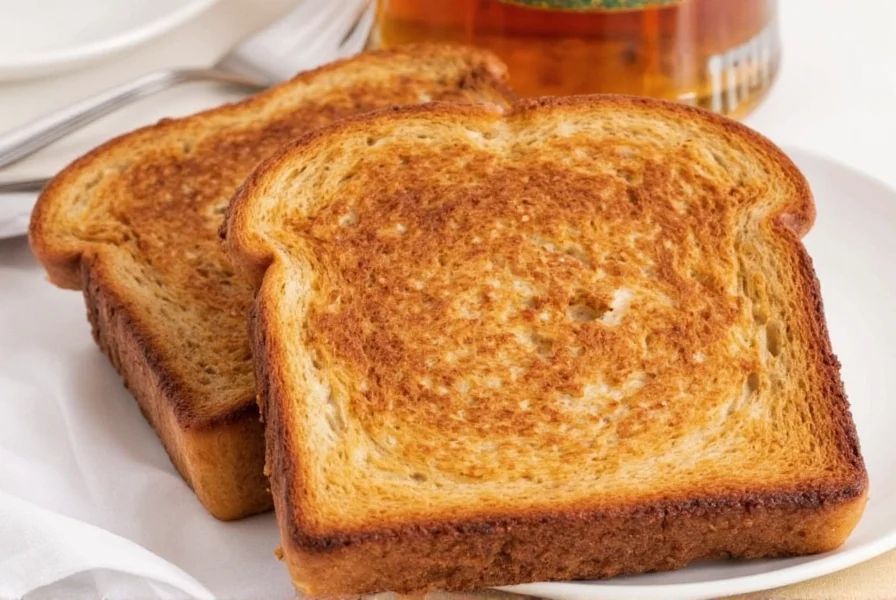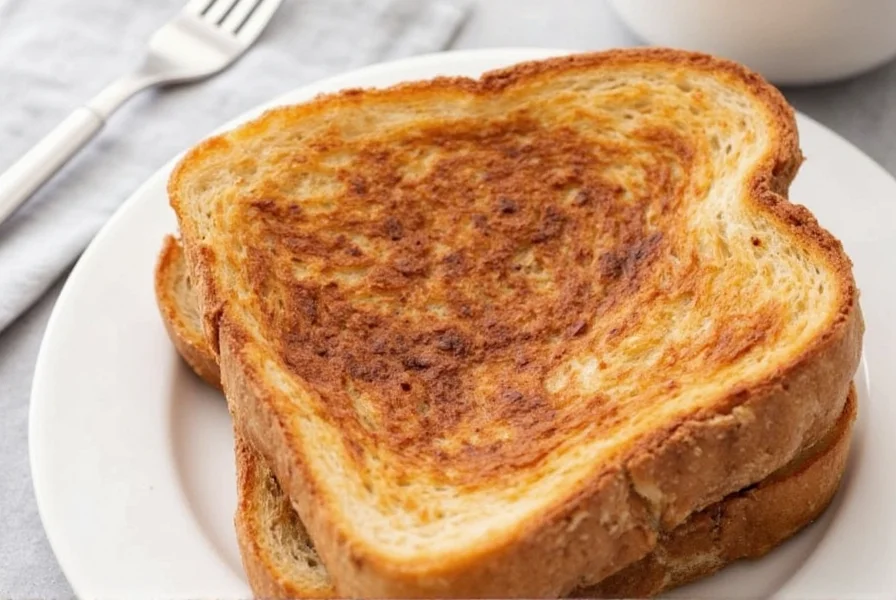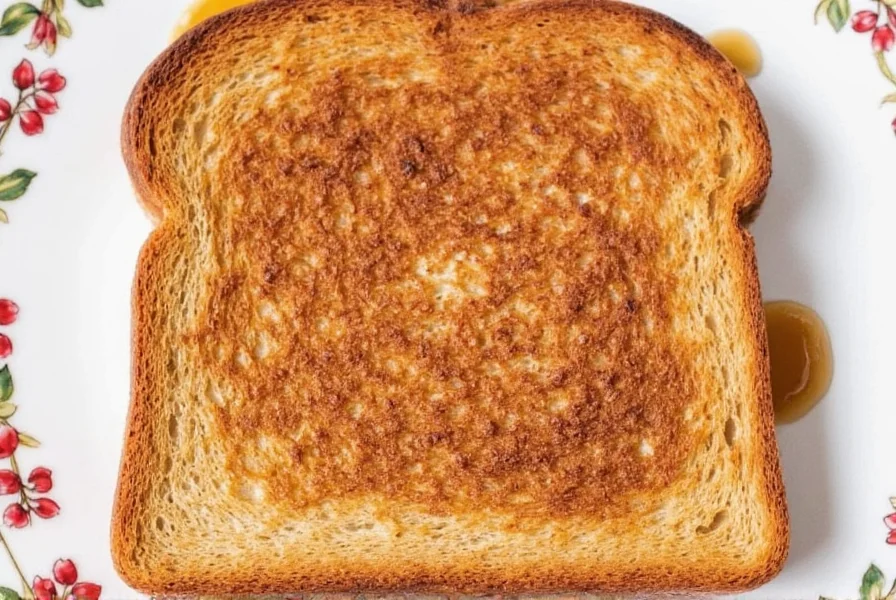There's something magical about the simple combination of toasted bread, butter, and cinnamon that creates pure comfort in every bite. This humble treat has been a breakfast staple and after-school snack for generations, and for good reason—it's quick, affordable, and endlessly customizable. Whether you're looking for a speedy morning meal or a nostalgic afternoon pick-me-up, mastering the art of cinnamon toast delivers consistent satisfaction with minimal effort.
Essential Ingredients for Perfect Cinnamon Toast
While the ingredient list appears straightforward, each component plays a crucial role in achieving that ideal balance of crispy texture and aromatic flavor. Understanding these elements helps you make informed choices for the best possible results.
| Ingredient | Role in Recipe | Quality Considerations |
|---|---|---|
| Bread | Provides structure and texture base | Choose bread with good structure that won't become too brittle when toasted |
| Butter | Creates moisture barrier and carries flavors | Unsalted butter preferred for better flavor control |
| Sugar | Creates caramelization and sweetness | Granulated sugar dissolves better than brown sugar for even coating |
| Cinnamon | Provides signature warm flavor | Freshly ground cinnamon offers superior flavor to pre-ground |
Selecting the Best Bread for Cinnamon Toast
Choosing the right bread makes a significant difference in your final product. While many varieties work, some perform better than others for this specific application.
For beginners learning how to make cinnamon toast without burning, thicker-sliced breads like brioche, challah, or quality sandwich bread provide the most forgiving canvas. These varieties have enough structure to withstand the toasting process without becoming overly brittle. Sourdough works well too, offering a slight tang that complements the sweetness.
Avoid very thin or ultra-processed breads that can quickly turn into crackers. For those following dietary restrictions, whole grain or gluten-free options can work but may require slight adjustments to toasting time.

Step-by-Step Instructions for Perfect Results
Follow these detailed steps to create consistently delicious cinnamon toast every time. This easy cinnamon toast recipe for beginners eliminates guesswork and delivers professional results.
- Toast the bread - Place bread in toaster on medium setting (level 3-4) until golden but not dark brown. The goal is a firm base that still has some flexibility.
- Prepare cinnamon sugar - While bread toasts, mix 1 tablespoon sugar with 1 teaspoon cinnamon in a small bowl. For a more complex flavor, add a pinch of nutmeg or allspice.
- Apply butter immediately - As soon as toast emerges, spread 1 tablespoon softened butter evenly across the surface. Work quickly before the toast cools.
- Sprinkle cinnamon sugar - Generously coat the buttered surface with your cinnamon-sugar mixture, ensuring even coverage to the edges.
- Final toast - Return coated toast to toaster for 30-60 seconds until the sugar melts slightly and becomes fragrant. Watch carefully to prevent burning.
Pro Tips for Cinnamon Toast Mastery
These professional techniques elevate your quick breakfast cinnamon toast from good to exceptional:
- Butter temperature matters - Use butter that's softened to room temperature for even spreading without tearing the bread
- Cinnamon sugar ratio - The ideal cinnamon sugar ratio for toast is 1:4 (cinnamon to sugar). Adjust to taste, but exceeding 1:2 often creates overpowering spice
- Toaster positioning - Place toast toward the back of the toaster for more even second-toasting
- Timing is everything - Apply butter within 15 seconds of toasting for optimal absorption
Delicious Variations to Try
Once you've mastered the basic technique, experiment with these popular cinnamon toast variations and toppings to keep things interesting:
- Honey drizzle - After toasting, lightly drizzle with honey for extra sweetness and shine
- Nut butter base - Substitute half the butter with almond or peanut butter for added protein
- Fruit compote topping - Serve with a spoonful of warm apple or pear compote
- Overnight cinnamon toast - Prepare unbaked version, wrap, and toast in morning for a grab-and-go breakfast
Serving and Storage Recommendations
Cinnamon toast tastes best when served immediately while still warm and slightly crisp. For optimal enjoyment, consume within 5-10 minutes of preparation.
If you must store leftovers (though they rarely last that long!), place cooled toast in an airtight container at room temperature for up to 24 hours. To revive, briefly reheat in a toaster oven at 300°F for 2-3 minutes—never use a microwave as it creates sogginess.
For meal preppers, prepare the cinnamon sugar mixture in advance and store in a small airtight container for up to one month. Freshly ground cinnamon maintains its potency for about 6 months when stored properly.

Troubleshooting Common Issues
Even simple recipes encounter challenges. Here's how to address frequent problems when making homemade cinnamon toast with butter:
- Burning during second toast - Reduce toaster setting by one level and watch closely. Different toasters have varying intensities.
- Sugar not adhering - Ensure butter is properly softened and applied while toast is still warm.
- Soggy texture - You've likely used too much butter. Stick to the recommended 1 tablespoon per slice.
- Uneven browning - Rotate toast 180 degrees halfway through initial toasting for even exposure.
Frequently Asked Questions
Can I make cinnamon toast without a toaster?
Yes, you can prepare cinnamon toast using alternative methods. In a conventional oven, toast bread on a baking sheet at 350°F for 3-4 minutes per side. For stovetop preparation, use a dry skillet over medium heat, flipping once golden. The key is achieving that perfect golden base before adding the cinnamon sugar mixture.
What's the best cinnamon to use for cinnamon toast?
Ceylon cinnamon (often labeled "true cinnamon") offers a more delicate, complex flavor compared to the more common Cassia cinnamon. However, most home cooks find standard grocery store cinnamon works perfectly well. For the most aromatic results, purchase whole cinnamon sticks and grind them yourself using a spice grinder or mortar and pestle.
How can I prevent my cinnamon toast from becoming soggy?
Sogginess typically occurs from using too much butter or applying it to bread that's too cool. Use exactly 1 tablespoon of softened (not melted) butter per slice and spread it immediately after the first toasting cycle while the bread is still hot. The residual heat helps the butter absorb properly without creating a soggy layer.
Can I make cinnamon toast ahead of time for meal prep?
While cinnamon toast tastes best fresh, you can prepare components ahead. Make and store your cinnamon sugar mixture for up to one month. For complete make-ahead convenience, assemble the toast (without the final melt cycle), wrap tightly, and store at room temperature for 24 hours. When ready to eat, complete the final 30-60 second toasting to melt the sugar and revive crispness.











 浙公网安备
33010002000092号
浙公网安备
33010002000092号 浙B2-20120091-4
浙B2-20120091-4